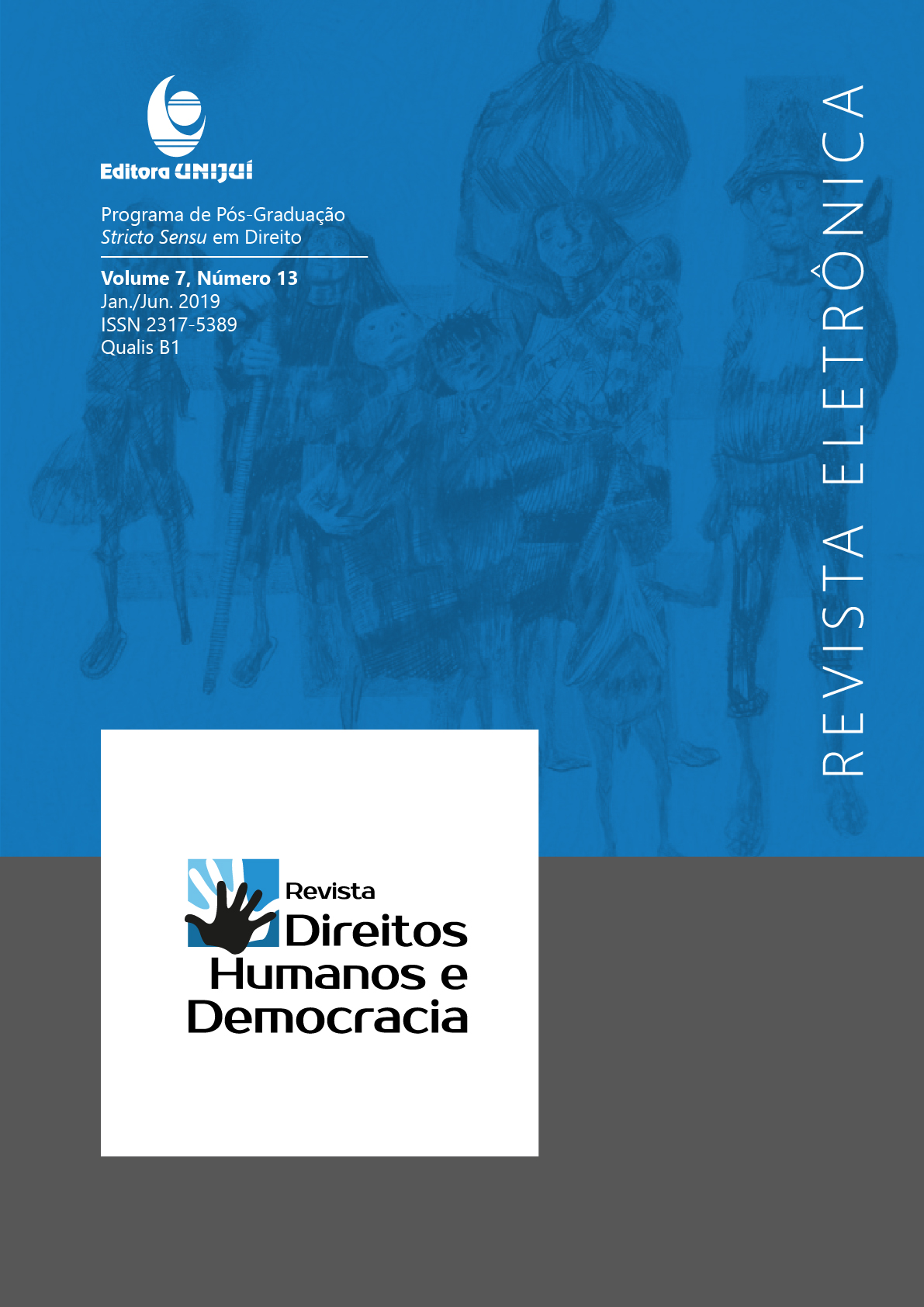A CRIMINALIZAÇÃO E A MARGINALIZAÇÃO DOS MOVIMENTOS SOCIAIS NO BRASIL: O CASO DO COLETIVO FEMINISTA PAGU
DOI:
https://doi.org/10.21527/2317-5389.2019.13.181-196Keywords:
Criminalização. Controle social penal. Movimento social. Ativismo público.Abstract
This paper aims to discuss that, in a democratic State of law, social movements are instruments of resistance and demand, when they face guidelines that civil society or other entities would not have the means or political will to address. Their actions constitute, through their dialogue with the State, in a form of public activism, and therefore legitimate within the current legal order. However, what can be deduced from the Brazilian reality is a criminalization of these forms of manifestation, in order to silence and render impossible the formulation of these ideals, which, in most cases, seek changes and political and legal advances. Finally, in order to demonstrate the State's action in relation to social movements, by means of the deductive method, in qualitative approach, the case of the feminist collective Pagu is analyzed and the attempt to impute the practice of vilification to religious objects in the Goiás state, an example of the antidemocratic, conservative pattern and hegemony in which Brazilian society and political forms are involved.
Downloads
Published
How to Cite
Issue
Section
License
By publishing in the Revista Direitos Humanos e Democracia, authors agree to the following terms:
Articles are licensed under the Creative Commons Atribuição 4.0 Internacional (CC BY 4.0), which allows:
Share — copy and redistribute the material in any medium or format;
Adapt — remix, transform, and build upon the material for any purpose, including commercial use.
These permissions are irrevocable, provided the following terms are respected:
Attribution — authors must be properly credited, with a link to the license and indication of any modifications made;
No additional restrictions — no legal or technological measures may be applied that restrict the use permitted by the license.
Notices:
The license does not apply to elements in the public domain or covered by legal exceptions.
The license does not grant all rights required for specific uses (e.g., image rights, privacy, or moral rights).
The journal is not responsible for opinions expressed in the articles, which remain the sole responsibility of the authors. The Editor, with the support of the Editorial Committee, reserves the right to suggest or request modifications when necessary.
Only original scientific articles presenting research results of interest, not previously published or simultaneously submitted to another journal with the same purpose, will be accepted.
References to trademarks or specific products are intended solely for identification purposes and do not imply any promotional endorsement by the authors or the journal.
License Agreement: Authors retain copyright over their articles and grant the Revista Direitos Humanos e Democracia the right of first publication.













